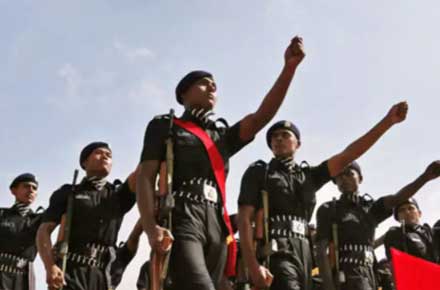Objectives
The specific objectives of the programme are:
- The National Service Scheme (NSS) of the College is headedby the Principal.
- To instill life skills in youths to live better and healthier life
- Increasing the capacity of the education system in teaching, training of various basic health aspects and helping the adolescents and youths for achieving positive health
- To ensure that every college going youth is equipped with conceptual knowledge about various basic health aspects which he may possibly encounter during his life
- To motivate youth and build their capacity as peer educators and agents of change by developing their skills on leadership, negotiation, and team building
- To promote voluntary non‐remunerated blood donation among youth
- Promote Regular voluntary blood donation by young people and increase access to safe and adequate quantities of blood
- To develop essential skills to cope with the adverse conditions pertaining to health specifically, supporting young people,
- To know their healthcare needs better,
- To develop and reinforce life skills that enable them to protect themselves from various health hazards,
- To dispel myths and clarify misconceptions regarding various health issues and events.
- To find out a way where they can identify various health problems and can fight them
- The general objectives of the programme are:
- To reduce new occurrences of HIV infection among youth by raising their risk perception through awareness on HIV prevention methods.
- To induce the spirit among youth to help and support people living with HIV/AIDS thereby reducing stigma and discrimination against PLHWAs.
- To motivate youth and build their capacity as peer educators and change agents by developing their skills on leadership, negotiation and team building.
- To promote voluntary blood donation among youth.
Programe
The programme is being implemented through Non-Governmental Organization in coordination with Universities’ trained RRC Incharge/ Programme Officers (Lecturers) and peer educators. Non-Governmental Organization will train the nodal teachers and peer educators with initial support from trained resource persons. The nodal teachers and peer educators will take interactive classroom sessions with students across all targeted colleges. These sessions will be based on five issues as follows:
- Healthy Life Style and Stress and Strain free Environment
- Drug Addiction
- Blood Donation Promotion
- Life skill Development and good eating habits
- Reproductive and Sexual Health including RTI/STI and HIV/AIDS
The sessions will be participatory and seek to address the concerns of youths on growing up through role‐play, brainstorming and discussion. They will also address myths and misconceptions that young people have about health and reply to queries of youths by using the Question Box.
Role of Principals of the Programme
- Formation of Red Ribbon Club advisory committee in college.
- Selection of two lecturers (Preferably one male and another female) for Red Ribbon Club.
- Oversee and participate in the implementation of Red Ribbon Club Programme, including development of youth interactive programme, implementation, and evaluation of activities.
- Provide technical support to NGO and RRC incharge/Programme Officer to develop youth-friendly and youth focusing IEC materials.
- Facilitate NGO representatives in implementing RRC programme effectively.
- Establishment linkages with other health services to increase assess of youths to them.
- Support in developing capacity of faculty to understand adolescents/youths’ mental, reproductive and sexual health Problems and provide students enabling environment to cope with them.
- Motivate students to donate blood regularly.
